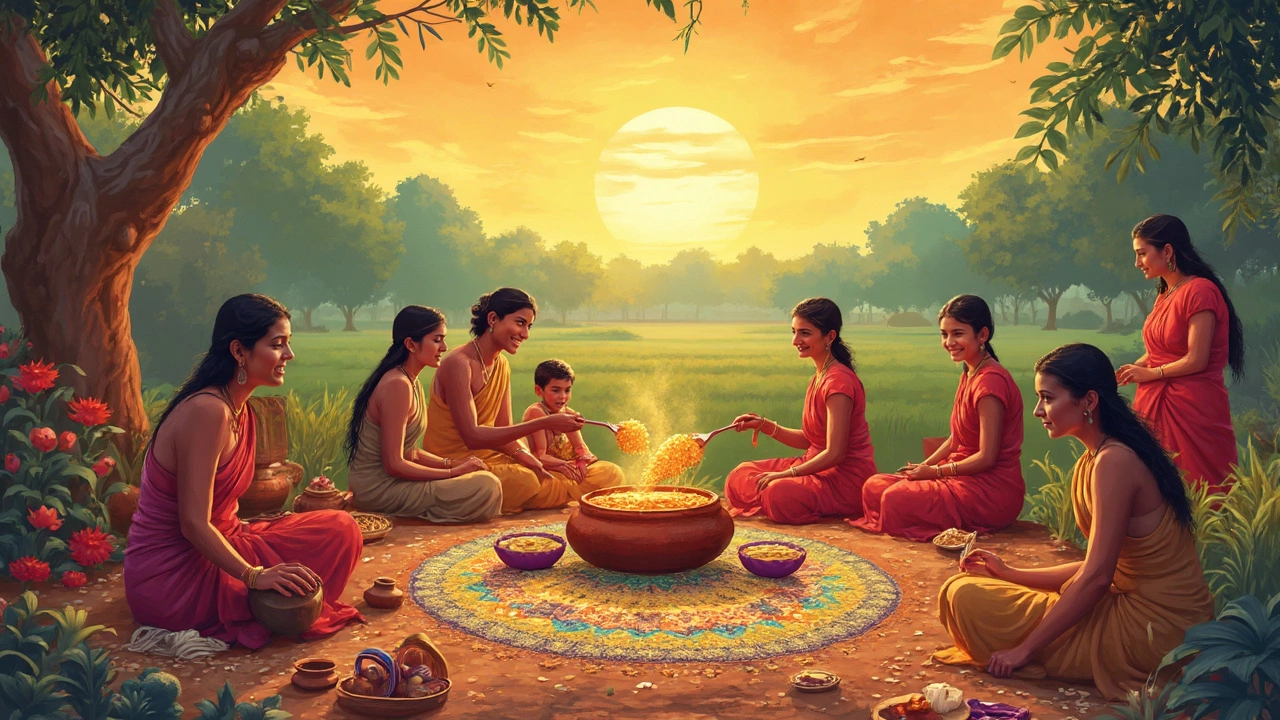Harvesting Festival: Tamil Traditions, Celebrations, and Why They Matter
When people talk about harvesting festival, a seasonal celebration marking the gathering of crops, often tied to community gratitude and spiritual thanksgiving. Also known as agricultural festival, it's a moment when people pause to honor the land that feeds them. In Tamil Nadu, this isn’t just a date on the calendar—it’s a living tradition passed down through generations, centered around Pongal, the four-day Tamil harvest festival that coincides with the winter solstice and the sun’s northward journey. Unlike generic thanksgiving events, Pongal is deeply tied to the rhythms of farming: when the rice fields turn golden, families gather to cook the first grains of the season in clay pots, letting the sweet overflow symbolize abundance.
This harvesting festival doesn’t just celebrate food—it honors the people who make it possible. Cattle, especially bulls and cows, are washed, decorated with paint and flowers, and paraded through villages during Mattu Pongal, the day dedicated to honoring farm animals that plow fields and provide milk. Women prepare sweet pongal rice with jaggery and milk, while men clean and repair tools used in the fields. Even the way the dish is cooked matters: the pot must boil over without spilling, because overflow means prosperity. This isn’t superstition—it’s a cultural code, passed from mother to daughter, farmer to son.
While Diwali and Holi get national attention, the harvesting festival, a seasonal celebration marking the gathering of crops, often tied to community gratitude and spiritual thanksgiving. Also known as agricultural festival, it's a moment when people pause to honor the land that feeds them. remains the quiet heartbeat of rural Tamil life. In villages, it’s the one time of year when city-dwelling relatives return home, not just for family, but to walk through the same fields their grandparents once tilled. The songs sung during Pongal aren’t performed on stages—they’re hummed while grinding rice, while sweeping courtyards, while waiting for the sun to rise over the paddy fields. And that’s the truth of it: this festival isn’t about spectacle. It’s about survival, memory, and the unspoken promise that next year’s crop will be just as good—if not better.
What you’ll find in the posts below are stories that go deeper than recipes and rituals. You’ll read about how Tamil communities in Sri Lanka and Singapore keep Pongal alive far from home, how modern farmers blend tradition with technology, and why some families still refuse to use electric stoves when making pongal. These aren’t just cultural footnotes—they’re acts of resistance, of identity, of belonging. Whether you’re Tamil or just curious, these stories show you what happens when a people refuse to let their roots wither—even in a world that moves too fast to notice them.
